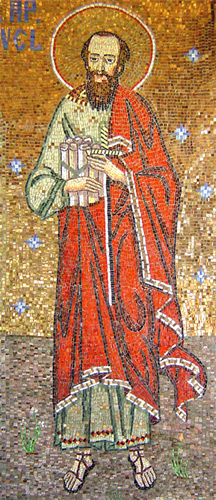John Hemer, 24/08/2015
Certain writers have suggested that Paul was struggling with his own inability to keep the Law and found in ‘lawless’ Christianity a way out. They maintain that whatever the nature of his conversion, he ‘gave himself permission’ to give up on Judaism and in fact turned against it, left it behind and threw his energy in something new and decidedly non-Jewish.
However Paul makes it clear again and again that Christ was the fulfilment of everything Judaism tried to do, and one way to express this was to refer to Jesus as the messiah. He uses the Greek form of the word Christ or Christos. The Jews at the time of Christ had not one but many differing ideas about the messiah. The standard ‘Sunday school’ presentation that they were expecting a man to come to save them and that man was Jesus is true in a sense, but is also a grand over-simplification.
N. T. Wright has identified six ‘traits’ of the messiah as expected by Jews which can be found clearly in Paul.
1) He is Israel’s true King. In Rms 1:3 Paul calls Jesus God’s son descended from David according to the flesh i.e. exactly the messiah the Jews have been waiting for.
2) He will eventually fight (and win) the great battle against the forces of evil and idolatry. In 1 Cor 15 we find a sustained exposition of how Christ has won the battle over sin and death. In Col 2: 15-15 Jesus captures the powers of this world and leads them in a victory procession
3) He will build a temple where God will be pleased to dwell. Throughout 1 Cor both the Church and the individual Christian is referred to as God’s Temple and Jesus is the foundation of it
4) He will bring Israel’s history to its climax and inaugurate the new age of which the prophets spoke. So when Paul says For Christ is the end of the Law, (Rms 10:4) he doesn’t just mean that Christ brought th Law to an end. He means that the purpose of the Law was to lead to Christ. He means that everything the Law tried to do, but failed, Christ has done, but this time succeeded.
5) In all this he will act as Israel’s representative. In Rms 3 Paul argues that although Israel was God’s chosen to present God’s goodness to the world she had not done the job properly but Jesus has done precisely this
6) He will also act as God’s representative. All the above are the true fulfilment of Israel’s hopes and God’s promises, but none of them took place in a way that people were expecting, often quite the contrary. But the whole of Paul’s writings are steeped in the idea that it is in Jesus that God’s true plans for the world are revealed.
Paul maintains that Jesus gave the Jews what they really needed. In what way does Jesus do this for you?
© Fr. John Hemer, used with permission.
Image: Mosaic from a church in Bucharest; Photo by Sergia Ballini, FSP.













